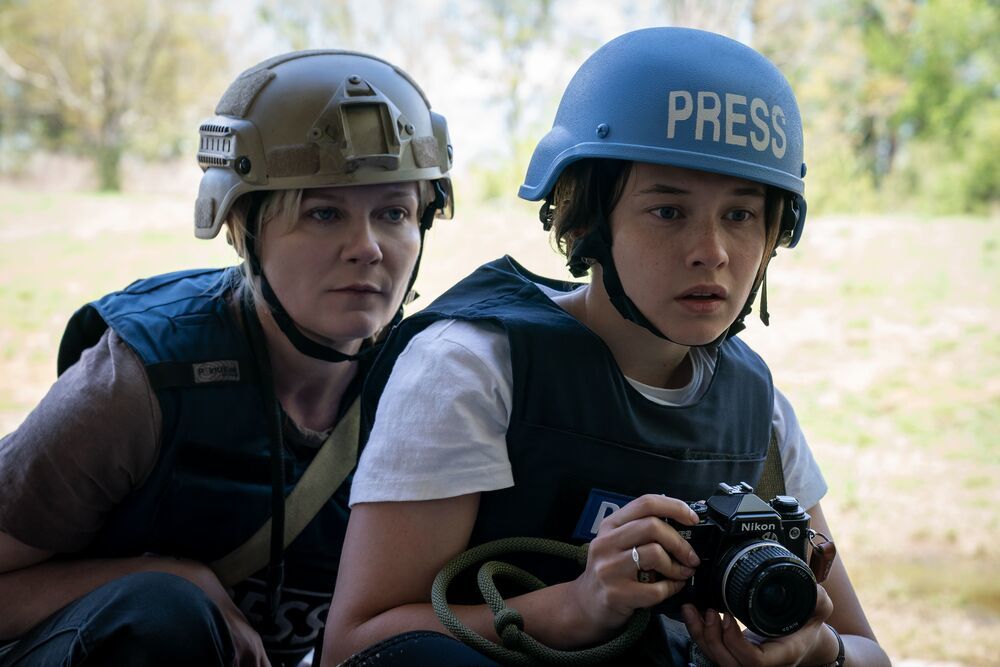Civil War

Kirsten Dunst and Cailee Spaeny star in CIVIL WAR. (Photo: A24)
Whoever has the most guns has the most power in Civil War, which opens with harrowing images of death and desolation juxtaposed with a callous American president (Nick Offerman) boasting about impending victory and military might.
Despite its title, this bleak thriller from Alex Garland (Ex Machina) isn’t really a war movie, although it does depict a near-future United States ravaged with apocalyptic-level destruction stemming from intense sociopolitical division, bureaucratic corruption, and armed conflict.
At its core, the chilling film is an episodic road-trip saga with a wildly inconsistent tone. The chaotic high-stakes climax becomes a whirlwind of moral ambiguity that somehow rings hollow and collapses under the weight of its own ambitions.
However, although the big ideas don’t always coalesce, it’s certainly audacious and provocative, with its pulse on present-day volatility to add an unsettling layer of urgency.
The story is set along the East Coast, which for unknown reasons is being invaded by insurrectionist forces from California and Texas. We’re introduced to veteran news photographers Lee (Kirsten Dunst) and Joel (Wagner Moura), and later to a longtime scribe (Stephen McKinley Henderson) and a wide-eyed young freelancer (Cailee Spaeny).
They’re from different outlets but crowd into a press truck for a circuitous voyage to Washington, where the conflict is boiling over into outright revolution. Their route plunges them into some perilous confrontations that illustrate the depth of the country’s discord.
Just how far into the future does the film take place? As it scrutinizes domestic ideals, some of its real-life parallels are obvious, and others are more open-ended.
Contextual details are muddled, although Garland’s screenplay hints at blaming some of the usual suspects — ideological extremism, socioeconomic despair, racial and religious intolerance. The film avoids preaching or taking sides, almost to its detriment.
The result hits close to home in emotionally impactful ways, even while creating distance with fictional elements that don’t ring true. Texas and California teaming up? Journalists who avoid sensationalism and bias? It also dials back technology like smartphones or social media.
Still, the strong central performances keep the uneven material grounded during quieter moments. The quartet’s resilience and compassion provide a glimmer of hope amid the devastation. Along their journey, the film immerses us in a visually striking mix of imagery both beautiful and horrific.
Civil War awkwardly infuses idealism into its dystopian vision, but admirably asks difficult questions without providing easy answers.
Rated R, 109 minutes.